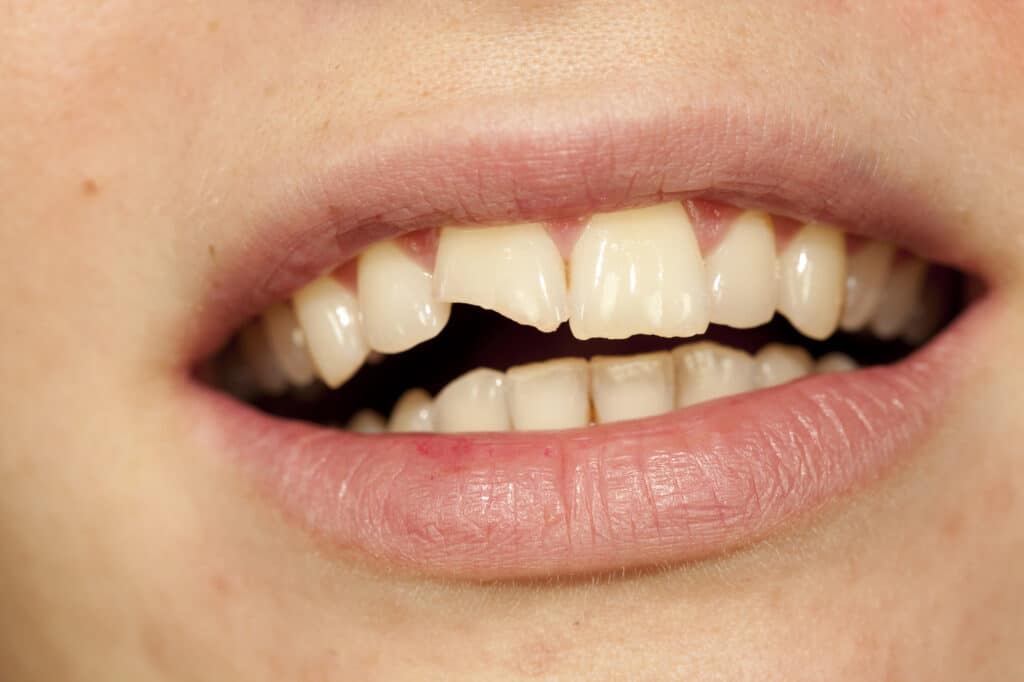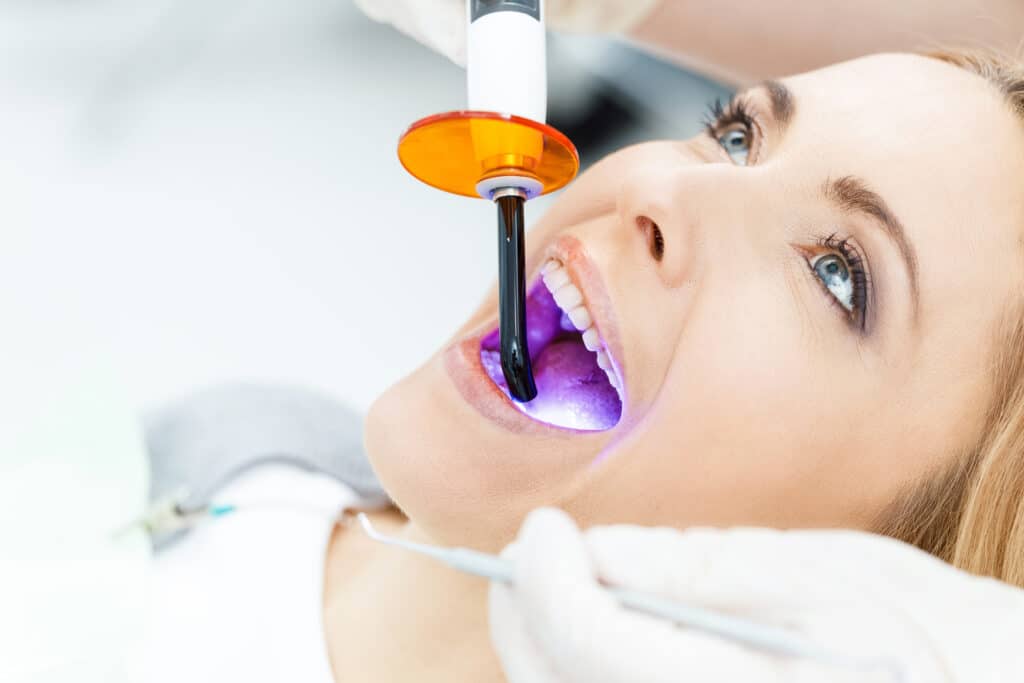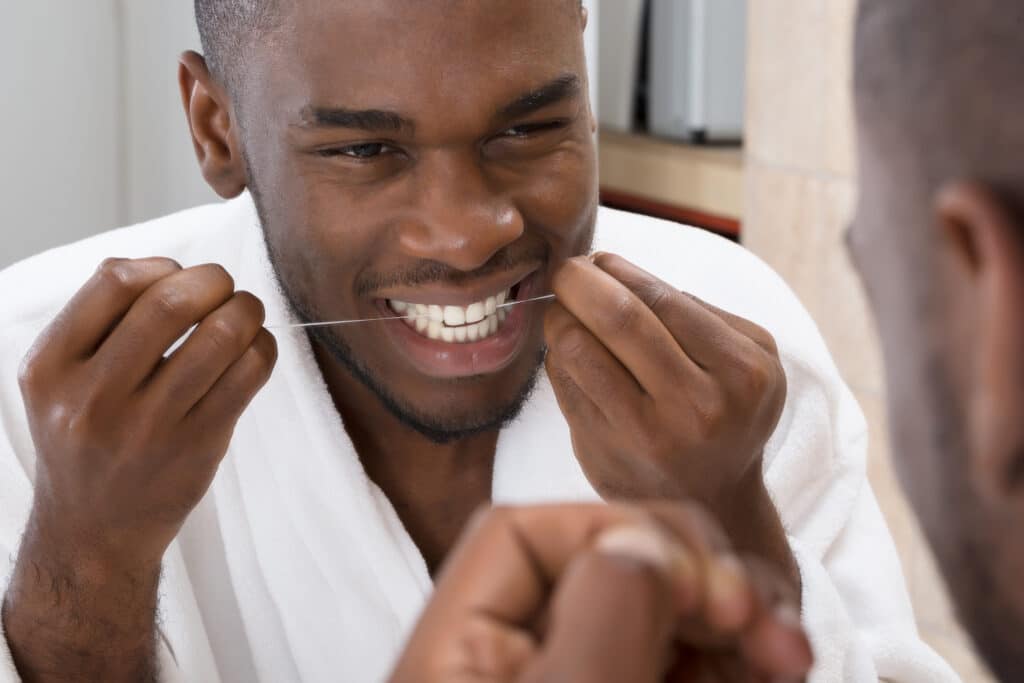
Chipped teeth can be caused by accidents, impacts, biting into hard foods, or grinding your teeth. However your chipped tooth came to be, it’s important to fix it as soon as possible — not just for aesthetic reasons, but to prevent further damage and restore function, as well.
If you have a chipped tooth, consider dental bonding. This simple solution is quick, non-invasive, and effective for repairing minor damage.
At VIP Smiles, we’re proud to offer dental bonding to our patients who want a convenient way to restore their smiles. Keep reading to learn what dental bonding is, its benefits, what to expect, and how to care for bonded teeth.
What Is Dental Bonding?
First, let’s explore what exactly dental bonding is. As a cosmetic procedure that uses composite resin to repair minor tooth damage, it can be a powerful tool for fixing a chipped tooth, covering stains, or reshaping irregularities.
It involves applying a special resin material to the tooth, shaping it to create a seamless appearance, hardening it with a special light, and polishing it to achieve a smooth finish. Compared to other options, such as veneers or crowns, dental bonding is a quicker, easier, and less invasive way to repair your chipped tooth.
Benefits of Dental Bonding for Your Chipped Tooth
If you have a chipped tooth, dental bonding may be the solution you’re looking for. This procedure provides many benefits, including:
- Non-invasive: Unlike veneers and crowns, which require enamel removal, dental bonding requires minimal tooth preparation.
- Quick procedure: Dental bonding is usually completed in one visit, making it a convenient option for addressing your chipped tooth.
- Affordable: Because the dental bonding process is quicker and less invasive than veneers or crowns, it’s often more affordable, which means it’s better for patients on a budget.
- Natural-looking results: The composite resin is color-matched to your teeth, creating a seamless, natural-looking appearance.
- Durable solution: While dental bonding is not as durable as veneers or crowns, the results can last several years with proper care.
The Dental Bonding Process: What to Expect
Now that you know what dental bonding is, let’s go over what you can expect when you choose VIP Smiles to fix your chipped tooth.
1. Consultation and Evaluation
First, we’ll examine your chipped tooth to determine if bonding is suitable. During this initial consultation and evaluation, we’ll discuss which resin color matches your teeth best and how the final shape will look.
2. Preparation
The next step is preparing the tooth. Typically, no anesthesia is needed, unless the chipped tooth is near a nerve. We’ll roughen the tooth’s surface and apply a conditioning liquid designed to help the resin adhere securely.

3. Application and Shaping
After that, it’s time to apply and shape the resin. We’ll apply the composite resin in layers, gradually building it up to fill the chipped tooth and sculpting it to match the natural tooth shape.
4. Curing and Polishing
The final step is curing and polishing the resin. We use a special light to harden it, and then give it a final shaping and polishing for a smooth, natural finish.
How Long Does Dental Bonding Last?
Dental bonding is generally durable; however, it doesn’t last a lifetime. The typical lifespan of dental bonding is about 3 to 10 years, but that number may be different depending on the level of care. Factors that influence its longevity include your diet, whether you have habits like chewing on non-food items or clenching your teeth, and your oral hygiene.
Signs that bonding may need repair or replacement include chipping, cracking, discoloration, uneven texture, resin pulling away from the tooth, or a change in bite.

Caring for Bonded Teeth
If you opt for dental bonding to fix your chipped tooth, it’s important to properly care for your oral health to extend the life of the bonding. Here are some guidelines to help ensure long-lasting results:
- Avoid biting hard objects like pens, fingernails, and ice.
- Limit substances known to stain teeth, such as coffee, tea, red wine, and tobacco.
- Maintain good oral hygiene, which includes brushing, flossing, and regular dental checkups.
- If you’re prone to teeth grinding, wear a mouthguard at night.
When Is Dental Bonding Not the Best Option?
While dental bonding is an excellent solution for many patients, it’s not always the best way to repair a chipped tooth. Large chips or severe damage may require veneers or crowns. Additionally, patients with bruxism (chronic teeth grinding) may need a more durable solution. Your dentist can help you determine which cosmetic/restorative option is best for your chipped tooth.
Fix Your Chipped Tooth with Dental Bonding at VIP Smiles
Our team at VIP Smiles is dedicated to providing outstanding restorative and cosmetic dentistry, including dental bonding. Whether you have a chipped tooth, discolored enamel, or misshapen teeth, contact us today to schedule an appointment and learn more about how we can restore your beautiful smile.

